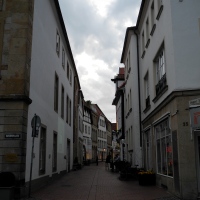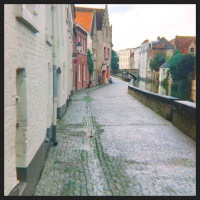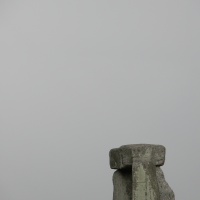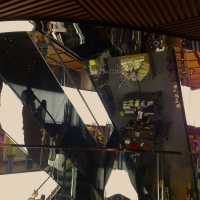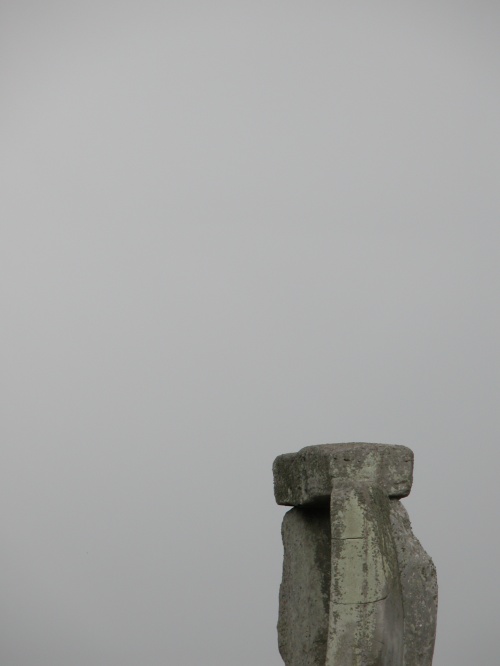
When I travel I like to try to immerse myself in cultures or countries by reading fiction or non-fiction that is set where I’m visiting. I finally finished a Hemingway novel recently while on a tour in Northern Spain. As we progressed from Pamplona to Logrongo and on to San Sebastián, the trials and tribulations of Hemingway’s emotionally tortured ex-pats Jake Barnes and Lady Brett Ashley dwelt in my mind. As we reached the yard in Pamplona that holds the penned bulls and progressed along the then empty streets, echoes of the real running of the bulls and of Hemingway’s young matador, Romero, came to me. Inevitably reading (or watching) a tale that’s set somewhere you’ve been gives you a thrill, or brings a deeper understanding of characters, context and story. Especially where place is a strong character in itself. Some stories could be set anywhere for all the effort the author makes to ground the tale in a particular place and time, but others are inextricably linked to their setting.
The first and only time (so far) that I’ve visited England, I brought along Hardy’s iconic Tess of the d’Ubervilles, which I’d never managed to read before (despite taking a Hardy elective in literature at Uni). My friend and I wound our way past hedgerows and along backroads to Higher Bockhampton in Dorset, where we came to the cob and thatch cottage home of Hardy’s childhood and stooped our heads (a lot, in the case of my friend) to fit under the doorway and shuffled up the narrow, rickety staircase. Visiting the house of Hardy’s beginnings helped me picture a life and times far distant from my own. It also helped me picture the author at work. However in regards to his books, unfortunately, the victimisation of Tess and the looming sense of deep tragedy was too much for me, wandering far from home and to stop myself descending into a depressed stupor I had to get rid of that book half-finished. One day I hope to have the stamina to reach the Stonehenge scene, but after ten years, I still haven’t resumed Tess’ story since I abandoned her in Bath. In my mind she is perpetually stuck in the middle of her sad tale.
At the time, I moved on from Tess to a book about the Georgian princesses. This was also somewhat depressing, but more in the manner of a ghoulish accident that you can’t help stopping to gawk at. I discovered just how many wives of Georgian kings were made unhappy, locked up and declared insane (to get them out of the way) and how many sisters of the kings remained spinsters. All in all they were not a happy lot, although nor were their dissolute husbands and brothers. Certainly the lives of royals otherwise just names and numbers came to life through the pages and, coupled with visits to places such as the Tower of London, gave me a greater sense of gratitude about being born when and where I was. Sometimes western freedoms of job choice, living situations, hobbies and products available can almost seem a burden of choice, but in contrast so many people’s lives have been so constricted by culture, family and circumstances of birth that I was faced anew with the amazing gift of the freedoms I enjoy.
On my recent trip to Europe I determined to read a book relating to each country I visited. Travelers in the 19th century had available to them the ‘Miniature Library’, which included seminal works such as The Bible, poetry and French and German Dictionaries, cultural touchstones to take with them into new situations. For this trip I mainly traveled with e-books on my tablet and rather than carrying the familiar or the exalted with me, looked to gain insights into another cultural mind through the porthole of the book. My main criteria for the books I chose to download was that they should provide factual information about the country, its people and culture, intertwined with highly readable personal memoir or travel anecdotes or well-written literary fiction. The first book I chose was The almost nearly perfect people by Michael Booth, a non-fiction analysis which covers five ‘nordic’ countries and so covered off three that I was visiting: Denmark, Sweden and Finland. The author, as an ex-pat married to a Dane, was observing one culture he’d married into and a country he’d lived in, and other countries he had traveled to and spent various time in. I gleaned a lot of social observations and was able to delve further into the history and motivations behind these cultural expressions through this book. Everything from the hot tub phenomenon to Santa Claus was covered in the pages. I’m not sure if it helped me relate to those I met more sensitively but it certainly kept me informed – and his reflection about the prevalence of hot tubs in Swedish households did prove true in my personal experience. I was also supplied with various trivia I could raise later in conversations, although I must admit to having forgotten a large part of it 6 months on, perhaps I was too distracted by all the wonderful art galleries I visited in those countries and need to re-read his book now I’m back in the midst of ordinary life.
Most important of all in travel writing is humour. Whether an author is writing about their own country or a country they travel through, if they can do it with a humorous perspective they’ve succeeded in my book. All that I ever knew about the phenomenon known as Nordic Walking, I learnt from the relevant chapter in Adam Fletcher’s Make me German. I purchased a dual German/English version of the book for some friends who had just moved to Germany. This book definitely provided the most humorous observations of any book I read this trip. I have an attraction to strange cultural practices and so take delight in other people’s observations of them in all their splendidly eccentric minute detail. Michael Moran’s descriptions of attending and running training conferences at a location in rural 1990’s Poland in A country in the moon were also humorous and prove how much stranger truth can be than fiction.
When we’re back at home travel writing can help take us on a journey of the imagination or provide destinations to add to our real world travel wish lists. So what can reading travel writing do for us while we’re actually traveling? Sometimes it provides information about places we’ve been, in addition to tours or guide books, or it explains practices or sights that were culturally strange to us. Good travel writing provides more than just the present moment, it gives us the wider historical and perhaps political and social context that we need to understand why a nation and its people are the way they are, and where this is a world a way from our own experience, it gives us hints as to how to relate to people. Most of all it does put us in the shoes of actual people and show something of what it is like to be a citizen of a particular country, it helps us get inside an experience we will never fully be able to have for ourselves as someone born elsewhere speaking another language with a different experience of family, work, war and peace. Good travel writing should help us be human.
For my last trip I hoped to read one book for each of the eleven countries I visited. I’m still looking for books that fit my criteria that cover the Netherlands, Belgium and Estonia. If you have any suggestions, please let me know.
Some books I’ve read while traveling:
ENGLAND
- The Georgian Princesses – John Van der Kiste
- Tess of the d’Urbervilles – Thomas Hardy
SWEDEN, DENMARK, NORWAY, FINLAND, ICELAND
- The almost nearly perfect people – Michael Booth
POLAND
- A country in the moon – Michael Moran
GERMANY
- Make me German – Adam Fletcher
- Germania –
CZECH REPUBLIC
- Me, myself and Prague – Rachael Weiss
PORTUGAL
- Journey to Portugal – José Saramago
SPAIN
- Spain – Jan Morris
- The Sun also rises – Ernest Hemingway
- Tales of the Alhambra – Washington Irving
Reading around on blogs I just discovered the weekly travel themes over at Where’s my backpack and realise my post fits the weekly Travel theme: Books https://wheresmybackpack.com/2016/04/15/travel-theme-books/

